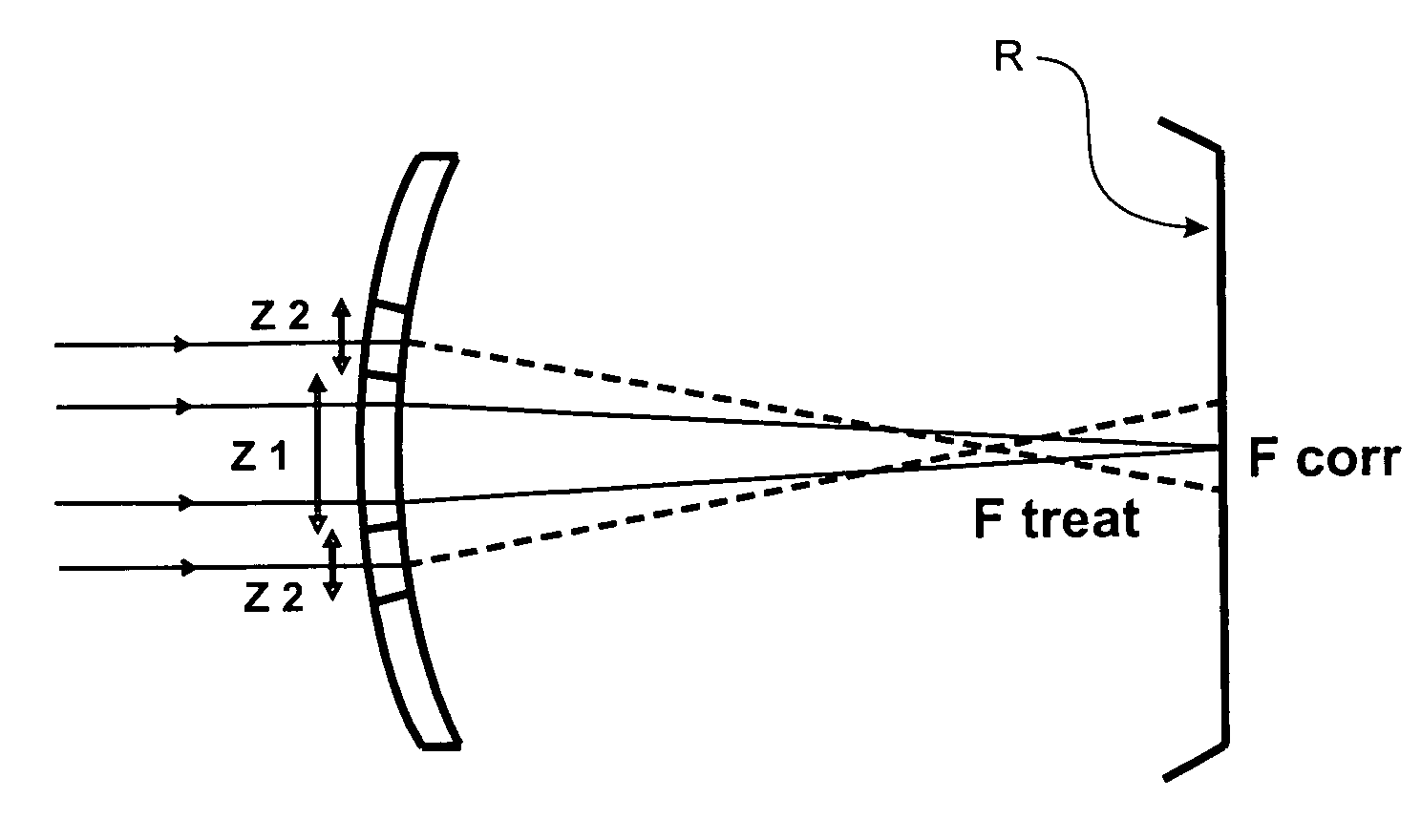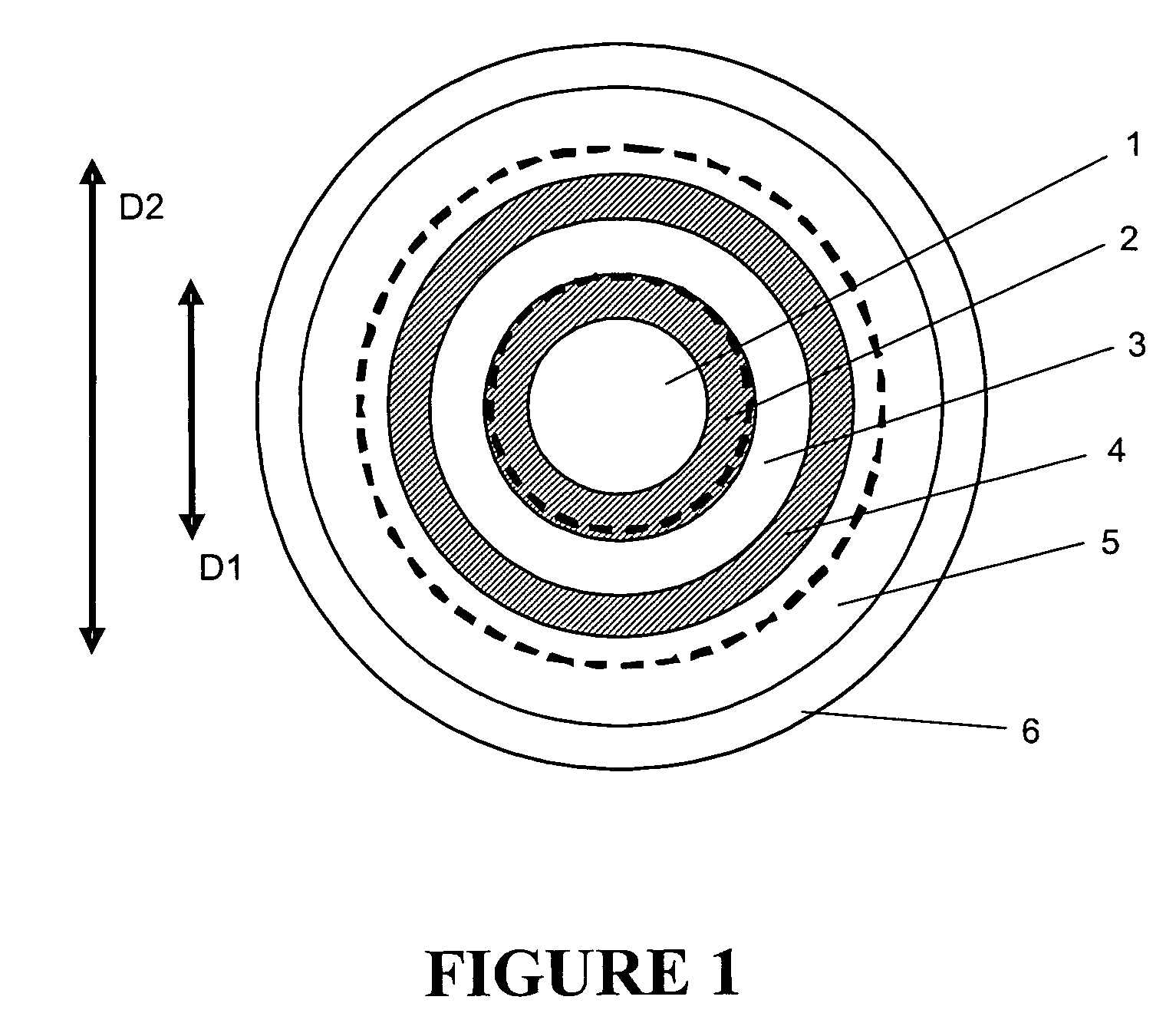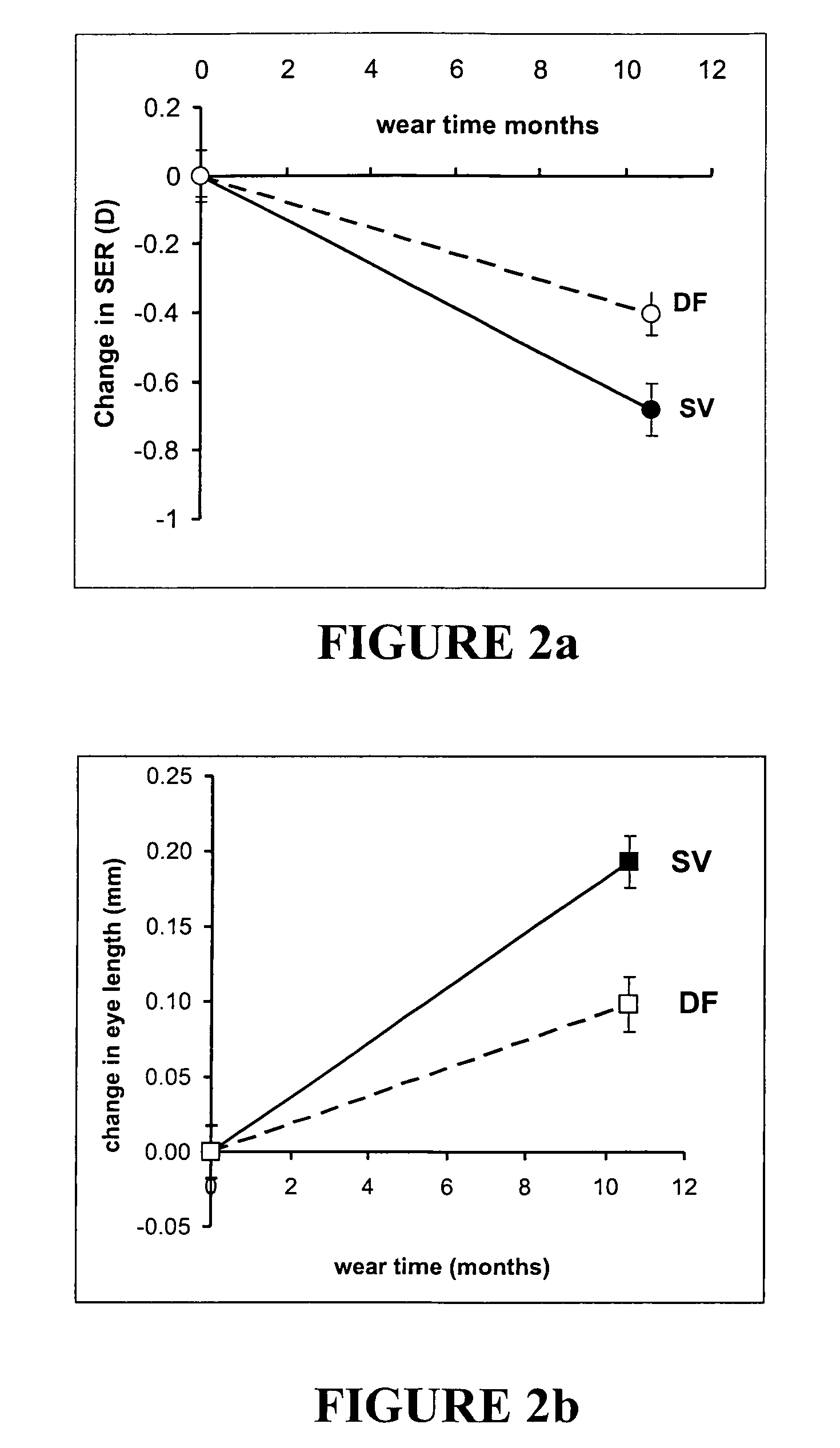Contact lens and method
a technology of contact lenses and lenses, applied in the field of contact lenses, can solve the problems of degenerative myopic retinopathy, glaucoma damage, eye more susceptible to retinal detachment, etc., and achieve the effects of slowing down myopia progression, and preventing myopia progression
- Summary
- Abstract
- Description
- Claims
- Application Information
AI Technical Summary
Benefits of technology
Problems solved by technology
Method used
Image
Examples
Embodiment Construction
[0045]Referring to FIG. 1 the preferred form of contact lens shown comprises a correction area which includes a central zone indicated at 1 which has a focal length or negative focal power to correct existing myopic vision of a wearer. The lens also comprises a treatment area which includes a second zone 2 around the central zone 1 and having a relatively less negative focal power than the correction area 1, which will simultaneously present a myopic defocused image to the wearer during both distance and near viewing, and which is referred to herein as a treatment zone or zone for convenience. When viewing the anterior surface of the lens along the central optic axis of the lens, as shown in FIG. 1, the central zone 1 is circular in shape, and the second zone 2 has an annular or ring-like shape circumscribing the central zone 1, and is concentric with the central zone 1.
[0046]The treatment area may be up to 5 dioptres less negative in focal power than the correction area, more likel...
PUM
 Login to View More
Login to View More Abstract
Description
Claims
Application Information
 Login to View More
Login to View More - R&D
- Intellectual Property
- Life Sciences
- Materials
- Tech Scout
- Unparalleled Data Quality
- Higher Quality Content
- 60% Fewer Hallucinations
Browse by: Latest US Patents, China's latest patents, Technical Efficacy Thesaurus, Application Domain, Technology Topic, Popular Technical Reports.
© 2025 PatSnap. All rights reserved.Legal|Privacy policy|Modern Slavery Act Transparency Statement|Sitemap|About US| Contact US: help@patsnap.com



